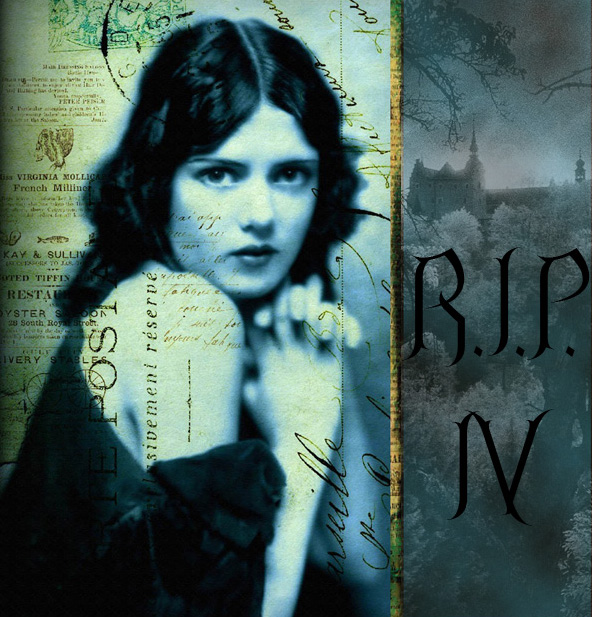I read this book mostly in bed over several nights, while the weather outside was obligingly turning into fall. Although there are things about the cold weather that are miserable (mainly miserable for my hands and feet, which get very poor circulation as my blood is too busy keeping the rest of me warm like a furnace), they are all outweighed by the snuggly loveliness of cuddling down into your bed when it’s cold outside.
(It’s not cold outside yet, by the way – just coolish and lovely – but I am anticipating the necessity of getting out my cache of spare blankets and piling them on top of me at night. I enjoy doing this, you know, the two nights a year it’s really cold in Louisiana.)
The Séance is a perfect book for the fall, and for the RIP Challenge. Constance Langton inherits a state home from a distant relation, but the lawyer in charge of giving her the inheritance advises her to sell it straightaway and never go inside it. As support for this bold claim (which would get me on the next train to see the place), he sends her a packet of papers relating to the house. They tell the strange history of the house – riddled with tragedy and disappearances, the latest of which is the mysterious disappearance of an entire family from Wraxford Hall.
John Harwood succeeds brilliantly at creating the atmosphere of the spooky Gothic manor house. The two characters, John Montague and Eleanor Unwin, who tell the history of Wraxford Hall, are initially outsiders to the Hall, looking in on it and wondering about its secrets. As the story goes in, they (and we) are drawn more deeply into it and its frightening secrets. It gets claustrophobic eventually, knowing all that you know about its past – you jump when the characters hear a noise.
The frame story, which follows Constance Langton as she tries to work out the secrets of the manor house, works less well. It’s by far the least interesting thing about the book, but it takes up an unfortunate number of pages. I found Constance dull, and her backstory doesn’t play into the rest of the book, and all the time she was onscreen as it were with her half-hearted underdeveloped love interest subplot, I was going, Where’s Eleanor Unwin? Why can’t she come back? Less time with Constance would have meant more time with Eleanor Unwin and John Montague. That would have been better.
I remember reading The Ghost Writer in England and thinking, Yes, okay, that was good, but think how much better it could have been. And my response to The Séance is much the same. They both had me on the edge of my seat while I was reading, but when they were done, the plots did not satisfy me.
Do you have this problem with very atmospheric books? Too much build-up, and not enough pay-off, so you feel let-down when it’s all over?
On a slightly different note, when you read a ghost story, do you insist upon its being an actual ghost (ghost/poltergeist/other occult event), in the end? Or do you prefer there to have been a human being orchestrating everything?
